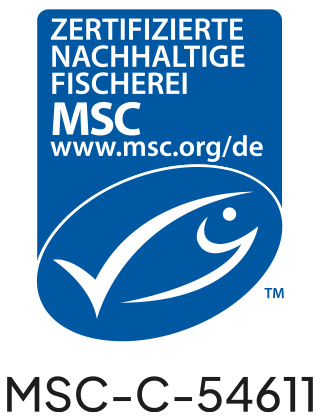Market Report October 2022
The general market situation
Everything is energy! – this is how one could summarize the now completed harvest season in the northern hemisphere. It is not, as in normal times, the harvest result as such that is decisive – even though there were large losses due to drought in southern Europe – it is the extraordinary effects of the Russian invasion war and in particular the Chaos in the energy sector, which also dominates our market. Extremely rising prices across the board are the result, which also contribute significantly to high inflation. At least the trend of the sea freight market, which has gone completely off the rails in the past two years, seems to have been broken. Weak global demand is already having an impact here, and the downturn into recession is clear.
Notes and recommendations
Pineapple
In Thailand, the main exporting country for canned pineapples, the winter harvest started in October after very limited availability of raw material between harvests from July to September, with production at a standstill in most canneries. Although yields through September are up on the poor previous year at around 840,000 tons (+11%), the gap to the long-term average remains considerable. The raw material price has been hovering unchanged at a low level between THB 7 – 8/kg for a long time.
Here, too, producers are struggling with rising costs in many areas. Much more expensive fertilizers are a drain on raw materials, and scarce labor is driving up labor costs in factories. The Thai baht, which is weak against the USD, compensates only insufficiently for this; many costs depend on the USD, such as imported tinplate, cardboard packaging and also energy. The development is quite similar in the other countries of origin such as Indonesia and the Philippines, which, as always, align their supply with the biggest player, i.e. Thailand.
After strong stockpiling in the past, demand is now more cautious and wait-and-see. However, the extraordinary procurement risks and associated uncertainty that exist on all sides continue to characterize this market. This must continue to be taken into account with sufficient inventory and at least medium-term contract hedging for the first quarter of 2023.
Tuna
During the FAD-ban (fishing without “fish aggregating device”, i.e. without decoy buoys) in the Western Pacific, catches decreased significantly. The price of skipjack rose to over USD 1,800/t, but has now fallen again with the end of the FAD ban and good catches to USD 1,600/t on the main trading hub in Bangkok. The situation is different in the Eastern Pacific, where the first “VEDA” closed season has just ended and the next one will follow as early as mid-November into January. Catches there are correspondingly weak and the price in Manta climbed to USD 1,900/t, a five-year high.
From Asia, we also expect a good supply for the next few weeks, although it can always be tight in the “niches”, e.g. fish from the Philippines which may be imported EU duty-free and also some specifications (e.g. cutlets in bags). The weak EURO against the USD (minus 15% year-on-year) is making imports increasingly expensive, whereas sea freight rates, which are no longer quite so high, are making calculations somewhat easier. Especially in the outports, however, the shipping situation continues to be difficult, departures are delayed again and again, and a lot of advance planning is required. We see the market as favorable in the coming weeks and recommend covering demand now, even beyond the first quarter of 2023.
Capers
Uzbekistan, Kyrgyzstan and Morocco are struggling with rising costs. Energy, packaging materials and, above all, raw materials are becoming increasingly expensive. This, combined with exceptionally severe heat waves in Morocco, has resulted in about 30% fewer capers being harvested than last year. We have been sourcing our capers from the main growing region of Morocco for many years and, thanks to our close connections, we are able to ensure supplies even in these difficult times. Our recommendation is quite clear: Cover your needs immediately!
Paprika
Currently, we are still in the paprika harvest season in Turkey, which, however, takes on chaotic courses. Commodity prices are rising daily. It was planned with 6 TL / kg for the raw material, in the meantime the suppliers stand at 14 TL / kg. The raw material is sold to the highest bidders, which are currently the producers of bell pepper pulp. We are experiencing a massive price increase this year, which is not only related to raw material prices: energy, packaging materials and wages are other price drivers. Added to this is galloping inflation, which is unofficially in the triple digits. Banks now only grant very short-term loans, so working capital is also in short supply.
We have already called up a large part of our contracts and had them shipped to support our long-term partners. As we have covered our requirements in good time and sufficiently, we still have a certain long position, but this will be used up very quickly. Do you still have a need by late summer 2023? Then feel free to contact us now.
Hot peppers
Unfortunately, the current market situation of hot peppers looks even more dramatic. Red Lombardi are almost impossible to find. The market situation of the green Lombardi initially appeared stable. However, the tide seems to be turning for the worse, as some growing areas have recently seen the first night frosts. Alternative origins, such as Egypt, unfortunately continue to “shine” with unreliability. We hope that there will soon be more positive news from this so fertile land. We will be happy to keep you informed about this.
Tomatoes
Globally, only 37.2 million tons of raw material will be available for processing this year, down from 39.1 million tons in 2021. In Europe in particular, adverse weather conditions, especially the extreme drought in Spain, left deep scars, with only 9.47 million tons harvested in the EU, down from 11.54 million tons in 2021, a decrease of 18! Reinforced by the worldwide continuing growth in demand and rapidly rising costs for processing, packaging and transport (energy!), concentrated tomato paste products were finally Prices twice as high paid as in the previous season. All other specifications, such as diced tomatoes and pizza sauce, are also extremely tight and note at a very high level. The market is “empty” and even alternative origins, such as Turkey or China, as well as the upcoming harvest in the southern hemisphere (Chile, among others), cannot close the large gap. The market will run even firmer in the first half of 2023 and it can only be a matter of “getting by” for the next twelve months.
Dried tomatoes
Many growers have had significantly fewer tomatoes dried this year. This is due to the extremely high raw material prices. Turkey was almost overwhelmed with requests for tomato paste, sauces, etc. due to the very poor harvest in Spain, Portugal and Italy. To make matters worse, the market has started the new crop with virtually no overhangs. All these factors lead to extreme price increases of over 100%. Initially, there was a small ray of hope in the form of a good harvest in North Africa. However, these were manageable quantities that are now no longer available on the market. It is now crucial to cover your needs immediately until August 2023. We expect that in 2-3 months there will be no available quantities at all. Please feel free to contact us about this now.
Although we consider our sources to be reliable, we do not assume any liability for the completeness and accuracy of the information listed here.
With kind regards
HENRY LAMOTTE FOOD GMBH
(created on 07.11.2022)









